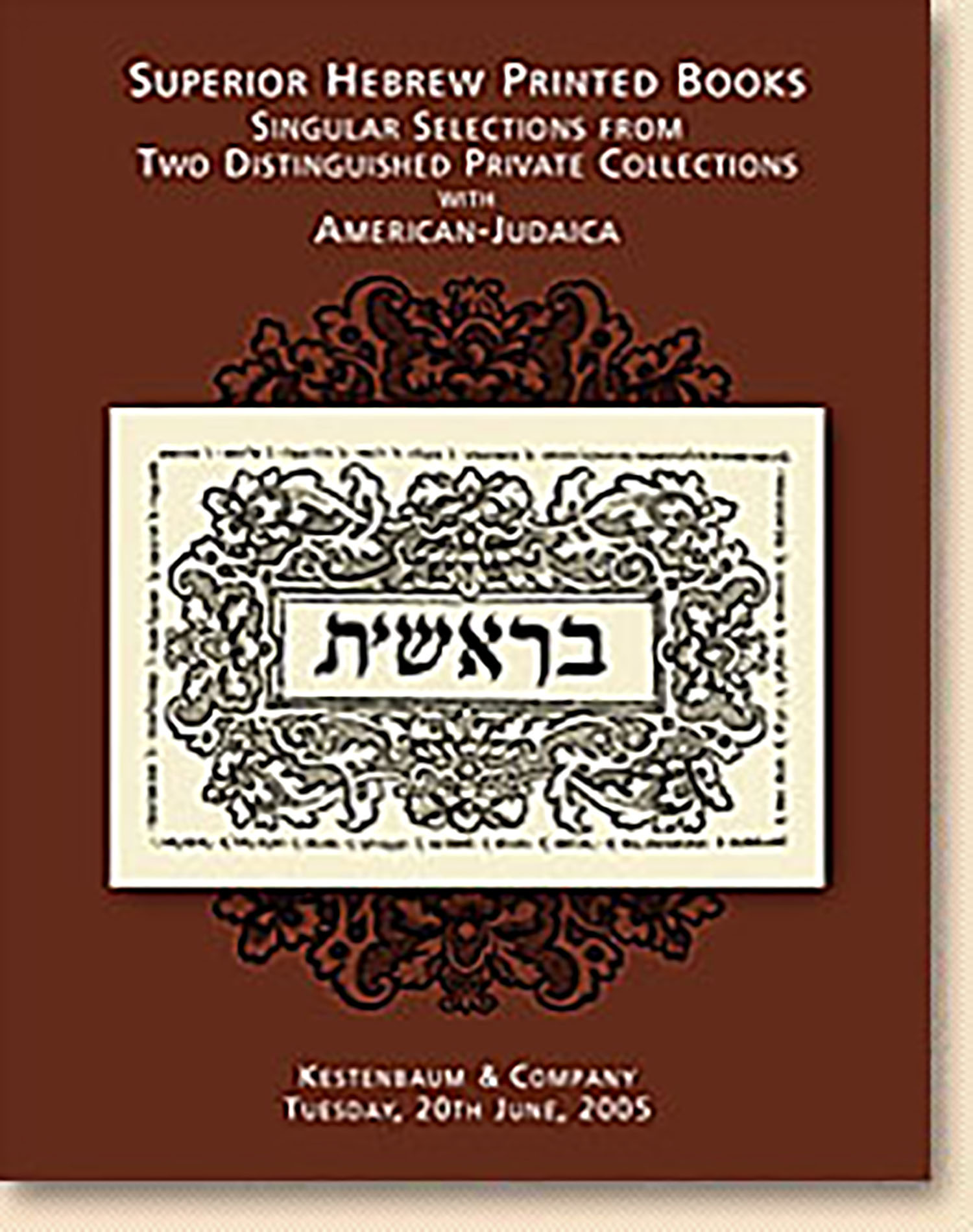GERONDI, JONAH BEN ABRAHAM.

AUCTION 29 |
Monday, June 20th,
2005 at 1:00
Superior Hebrew Printed Books: Singular Selections from Two Distingushed Private Collections with American-Judaica.
Lot 21
GERONDI, JONAH BEN ABRAHAM.
Fano: Gershom Soncino 1505
Est: $25,000 - $30,000
PRICE REALIZED $36,000
Rare First Edition of Sha’arei Teshuvah, a Classic Ethical Treatise.
Although Rabbeinu Yonah (c.1200-1263) (or at least his disciples) penned commentaries to several tractates of the Talmud (of which those to Berachoth, Bava Bathra, Sanhedrin and Avodah Zarah survive), his claim to fame clearly rests on the present work, Sha’arei Teshuvah. This highly significant treatise on repentance is in fact the earliest work of ethical literature. It is divided into four portals: The first is devoted to a definition of repentance; the second to a description of the various ways by which a man should arouse himself to penitence; the third, a classification of the precepts and the punishments meted out for their transgression; and the fourth, a discussion of the conditions of forgiveness.
The book is a favorite of the Lithuanian school of Musar founded by Israel Salanter. The noted thinker R. Isaac Hutner, a product of the Slabodka Yeshivah, devotes many a chapter of his Pachad Yitzchak to in-depth analysis of passages from Sha’arei Teshuvah. In recent years, there have appeared in print numerous commentaries written by scholars of the Lithuanian-style yeshivoth.
A.T. Shrock, a student of the eminent Talmudist R. Tzvi Hirsch Ferber, submitted a doctoral dissertation to the University of London on Rabbeinu Yonah. His study includes a genealogical chart of R. Jonah’s family as well as several tables comparing the printed editions to the manuscript version of Sha’arei Teshuvah found in the British Museum. Shrock makes the suggestion that our Sha’arei Teshuvah is only a portion of a much larger work containing perhaps eight more “she’arim” or portals. See A.T. Shrock, Rabbi Jonah ben Abraham of Gerona: His Life and Ethical Works (1948), pp. 95-105.
The Musar Haskel, by Hai ben Sherira Gaon (939-1038), last of the great Ge’onim of Babylon, is a long didactic poem of 189 double verses in the Arabic meter “rajaz" a system of Ethics. Hai is credited with being the first Eastern writer to use an Arabic meter in Hebrew poetry. Every strophe is complete in itself and independent of the preceding strophe. Many lines of the poem are good common sense: “Do not form a partnership with your helpmate / Do not engage in business with your relatives; Do not reside by the river / Flee before rains to the mountain” (f.38r.). Other themes of a more esoteric nature no doubt tie in with various theories of Hai Gaon. For example, “Do not tell your dream to an enemy” (ibid.). (It was the belief that an enemy could put a negative “spin” on the dream).
See H. Brody, Piyyutim ve-Shirei Tehillah me-Rav Hai (1937); Meyer Waxman, History of Jewish Literature I (1938), p. 216; JE, Vol. VI, pp. 153-155; EJ, Vol. VII, cols. 1130-1132; A. Greenbaum, “‘Pithron Chalomoth,’ History and Sources,” Aresheth IV (1966):190-201; B. Naor, Bringing Down Dreams: Exploring the Lost Art of Jewish Dream Interpretation (2002)
